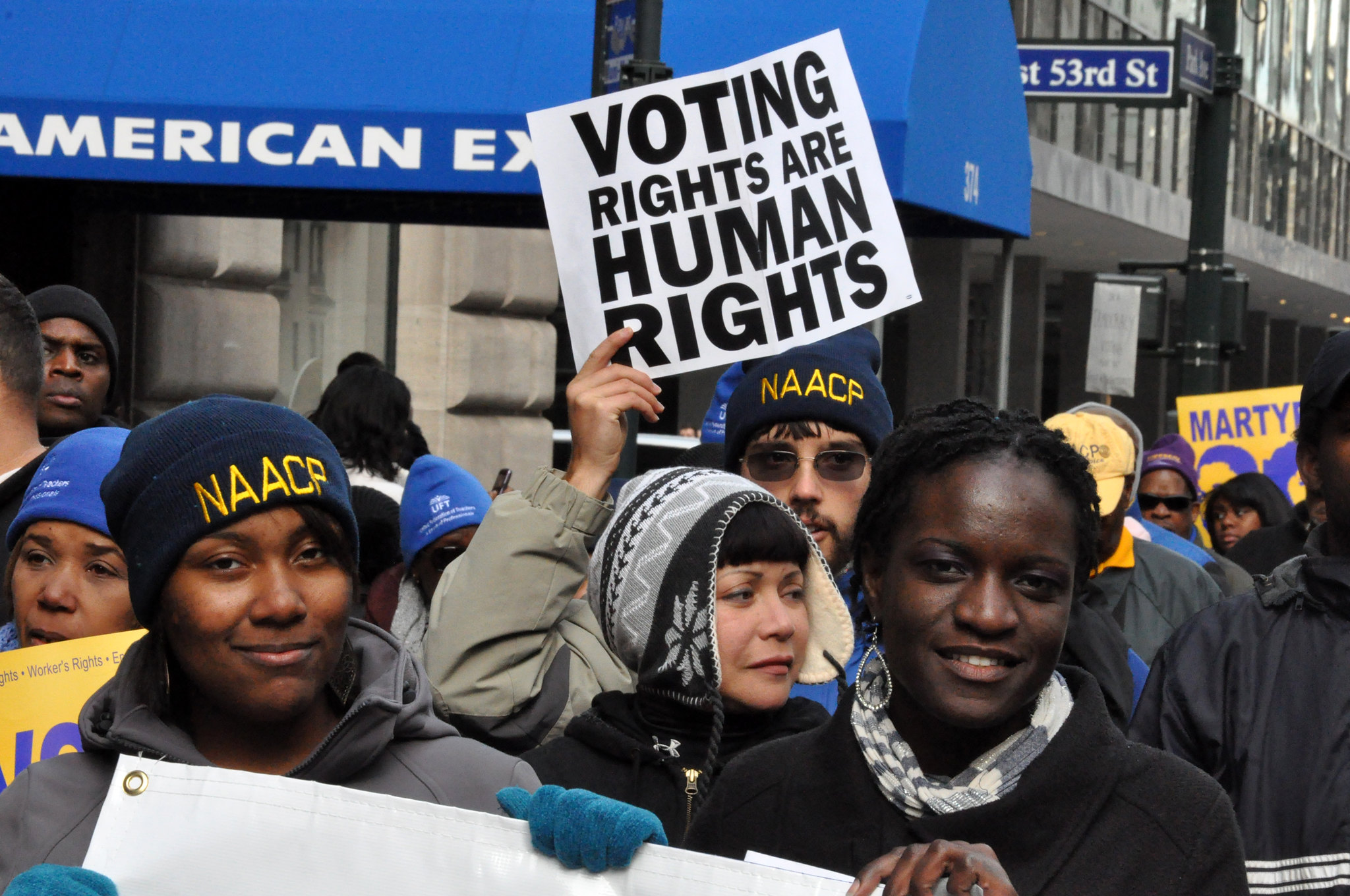My Civic students ventured into a 3-week exploration regarding voting. We explored the questions: What is the power of elections? Who has the power to influence and participate in elections? How can my participation in elections influence/impact issues I care about? How will I participate in elections?
I relied on Zinn Education Project’s voting rights unit to dive into these conversations. In Lesson 1: Who Should Get to Vote, my students engaged in thought-provoking discussions around whether or not they (16- and 17-year-olds) are prepared enough to vote. The majority of them claimed they should be allowed to vote because they are impacted by those decisions. Students also debated if convicted felons should have power to vote. In our state of Illinois there is a bill awaiting approval that would restore voting rights to convicted felons.
In Lessons 2 and 3 students learned more about voter suppression and they then took that information to assess whether or not our communities are impacted by such actions. Students concluded this unit by brainstorming action items that they can engage in to try and combat voter suppression. Some examples included pushing more people to vote, contacting legislators, educating others on the matter, donating to organizations combating voter suppression, and registering to vote.







Twitter
Google plus
LinkedIn